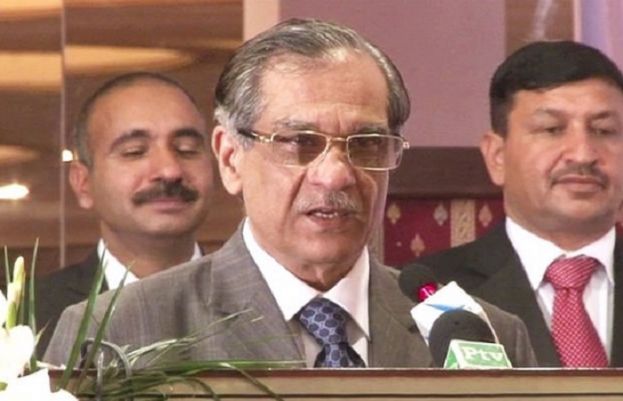
Taking notice of the DIG approaching his family members for a favour, the CJP had summoned DIG Dogar before the apex court’s Lahore Registry.
"Who advised that you can seek undue favour from my family members,” Chief Justice Nisar questioned the police officer.
“How dare you approach my son-in-law to seek a favour from me? How dare you think that anyone can ask Chief Justice of Pakistan for an undue favour? I am on a path of jihad (struggle) and you are asking me for favours,” the CJP remarked.
The top judge then summoned his son-in-law Khalid Rehman to appear before the court and record his statement.
Rehman told the court that DIG Dogar, who is currently fighting a custody case of his children against his ex-wife, asked him for a favour.
“DIG Dogar wants the name of his former wife and children to stay on the Exit Control List (ECL)," the son-in-law informed the two-member bench.
The DIG then submitted an unconditional apology to the court as did the son-in-law.
Chief Justice Nisar then ordered that further case proceedings will be held in his chambers.
Last year, DIG Dogar's former wife Mirjam Aberras Lahdeaho had filed a petition in the Lahore High Court seeking recovery of her sons from Dogar's custody.
In the petition, she stated that she was a citizen of Finland and Canadian national and married Dogar 31 years ago. The petitioner said she had three children with him, namely elder daughter Zara, and two sons, Ghulam Qasim Dogar and Ghulam Jafar Dogar.
She said both the parents of Dogar, his brother, and his sister were also Canadian nationals.
Dogar had asked Aberras to send the children to Pakistan to spend the holidays with him last year. She sent all three children home and then the DIG allegedly refused to let them fly back to Canada.
Mirjiam claimed the respondent initially used delaying tactics and flatly refused to send them back after a few months, according to media reports.
Court hearings
Moreover, the court also held the suo motu hearing on vacant post of Chief Information Commission Punjab. During the hearing, the apex court directed the Chief Secretary Punjab to make the appointment on merit.
Separately, the Supreme Court also heard the suo motu case on appointment of vice-chancellors in 37 universities. The court summoned a report from the chief secretary pertaining to selection criteria.
No comments:
Post a Comment